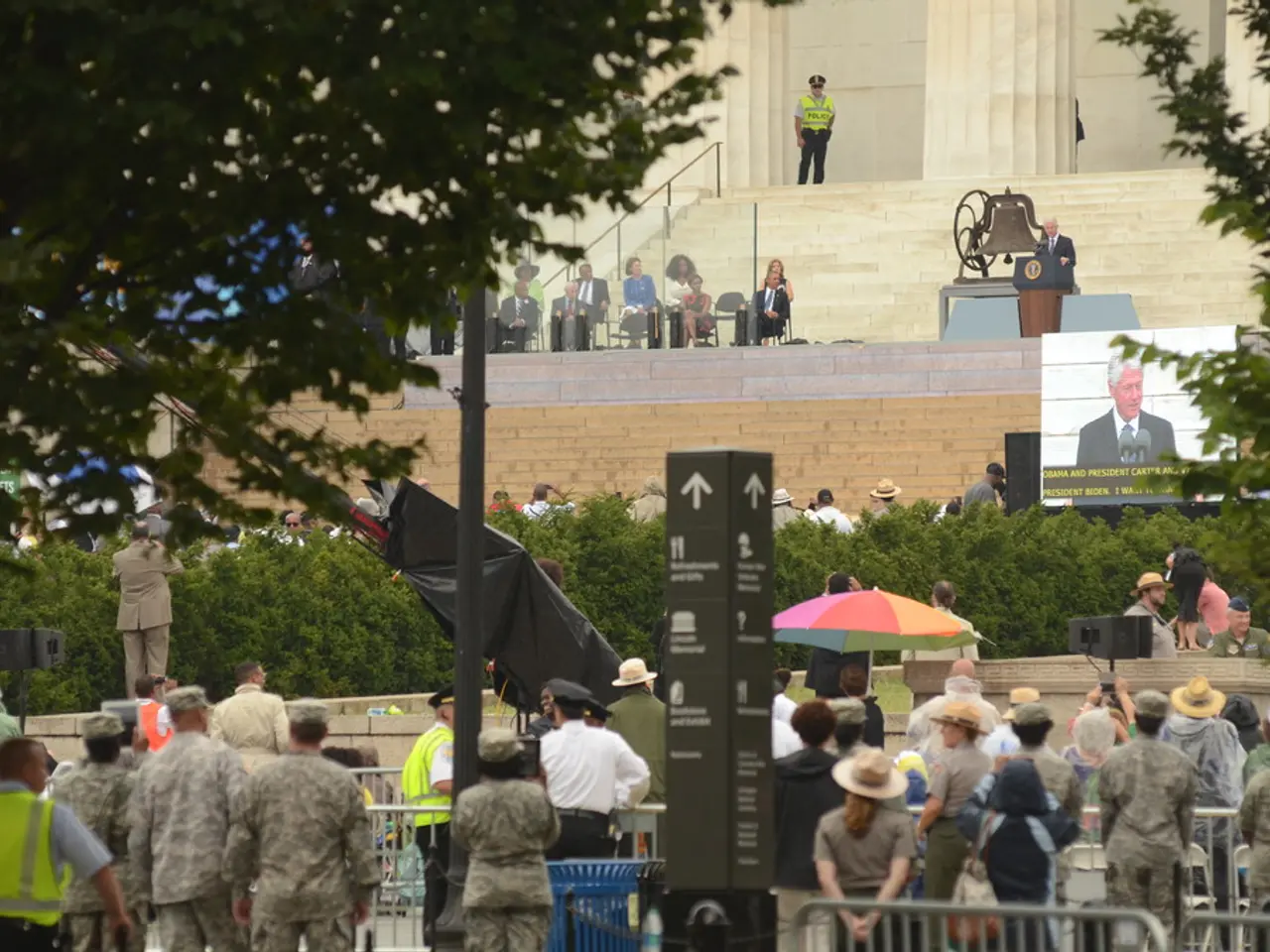Martial law enacted on Dec. 3 buried Assembly's symbolic gavel in its grounds, serving as a poignant reminder.
In a significant ceremony held on the 77th anniversary of South Korea's Constitution Day, Speaker Woo Won-shik of the National Assembly buried a time capsule, marking a pivotal moment in the country's democratic history.
The time capsule, intended to be opened exactly 100 years from the date of burial, is of great importance and serves as a testament to the enduring importance of constitutional governance. The capsule was buried in the front yard of the National Assembly, and the ceremony was attended by Woo and other parliamentary leaders, including deputy speakers Reps. Joo Ho-young and Lee Hack-young.
The time capsule contains various items that reflect the spirit of the times, including the gavel Speaker Woo used when announcing the passage of the resolution against martial law. Other items include legislative and policy reports, notable bills, Dokdo-related publications, photos of the Assembly, and messages from lawmakers and staff to future generations.
The capsule's significance lies in its commemoration of the National Assembly's role in upholding democracy, particularly its decisive action on December 3, 2024, when it overturned former President Yoon Suk Yeol's declaration of martial law. This event was seen as a crucial moment in protecting the constitutional order and preventing a potential constitutional crisis.
Accompanying the time capsule is a stone monument, constructed from stones sourced from the Mugunghwa garden near the main entrance of the National Assembly compound. The monument is inscribed with the words, "The National Assembly of the Republic of Korea, the last bastion of democracy." This inscription reinforces the message of the time capsule, emphasising the Assembly's commitment to democracy and its role as a protector of constitutional principles.
The monument was set up in remembrance of the day the National Assembly blocked martial law, a decision that signified the Assembly's unwavering dedication to democracy and the rule of law. Speaker Woo stated that the monument signifies the National Assembly's role in protecting the constitutional order, together with the people, as the last bastion of democracy in the country.
No further details about the stone monument beyond its inscription were provided, but its presence serves as a powerful symbol of the National Assembly's role in safeguarding democracy and constitutional governance in South Korea. The time capsule and monument will undoubtedly be a source of inspiration for future generations, reminding them of the sacrifices made and the principles upheld by the National Assembly in the face of adversity.
The time capsule and monument, placed at the National Assembly, symbolize the intersection of politics, policy-and-legislation, and general-news, as they serve as a chronicle of war-and-conflicts, particularly the Assembly's decisive action in overturning martial law. This act signified the Assembly's unwavering commitment to democracy and the rule of law, a testament that will inspire future generations.








